#simone and Malcolm Collins
Explore tagged Tumblr posts
Text
TL;DR: these are kid-smacking low-key eugenicists who give their children names like “Industry Americus” and think that keeping a home warm is a pointless extravagance.
The Guardian profiles pronatalists Malcolm and Simone Collins, and boy, these people are so full of themselves. Their commitment to effective altruism (you know, the same movement championed by Sam Bankman-Fried, who’s now in prison) somehow leads them to … not heat their home in winter?
as effective altruists, they give everything they can spare to charity (their [personal] charities). “Any pointless indulgence, like heating the house in the winter, we try to avoid if we can find other solutions,” says Malcolm.
And, for a couple who wants to have lots of babies, they don’t seem to like children very much.
The Collinses believe in childcare, but not maternity leave: Simone has never taken any. She will have the day of her C-section off “because of the drugs,” but will take work calls from hospital the day after. She tells me it’s because she’s “bored out of my mind” when she’s stuck with a newborn. … Malcolm tells me how much he doesn’t like babies. “Objectively, they are trying and they are aggravating. They are gross. This little bomb that goes off crying in this big explosion of poo and mucus every 30, 40 minutes. And it doesn’t have a personality, really.”
As for what that childcare looks like? They learned it from watching wild animals. For real.
Malcolm tells me that he and Simone have developed a parenting style based on something she observed when she saw tigers in the wild: they react to bad behaviour from their cubs with a paw, a quick negative response in the moment, which they find very effective with their own kids.
Lovely couple, these two.
#pronatalism#pro-natalism#pronatalist#pro-natalist#natalism#natalist#population#effective altruism#eugenics#Malcolm and SImone Collins#Simone and Malcolm Collins
13 notes
·
View notes
Text
Hipster Nazis
It’s interesting, somehow, reading about these nazi millionaire eugenicists white-supremacist at the same time as the Boaventura scandal is unfolding. Someone was told not to report being assaulted because Boaventura was so important for the cause…and…like, really? Even if you accept that kind of logic. Really? Some old college professor? When you have every billionaire, and most millionaires, on earth actively supporting nazi ideology with all of their wealth. What the fuck good is he? The structures here, and the insular cult-like worlds created by these men is frightening, and absolutely not surprising. This is academics.
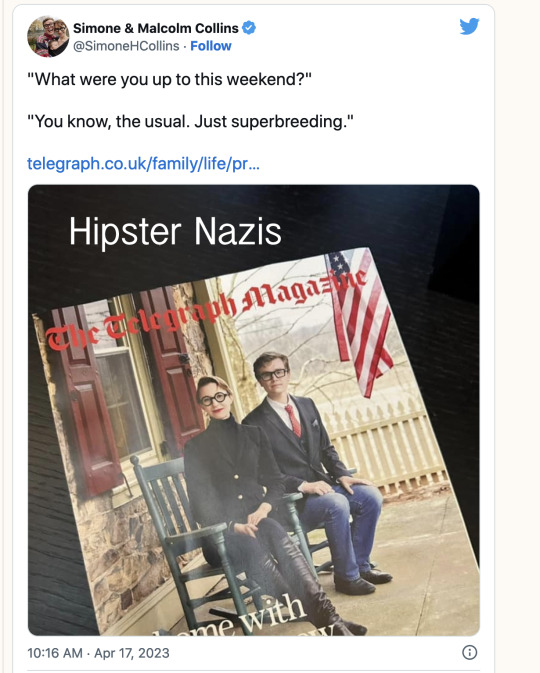
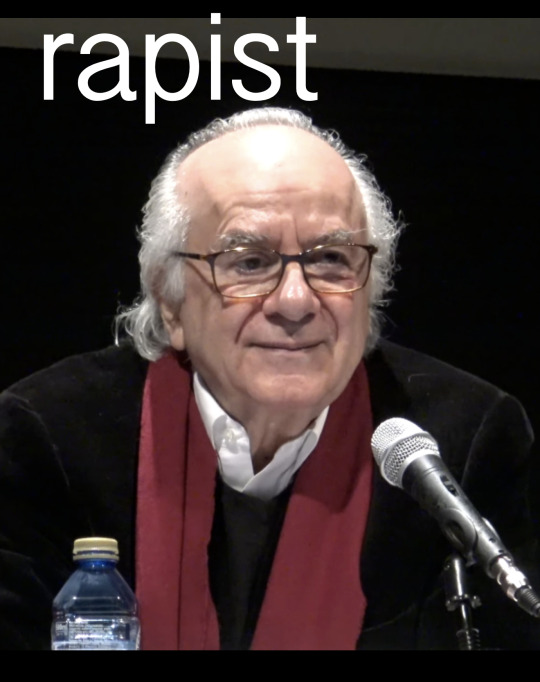
#Boaventura de Sousa Santos#hipster nazis#Oxford University: Nazi Death Cult#cults#academics#Epistemologies of the South#assault#billionaires#boaventura#simone and Malcolm Collins#eugenics
0 notes
Video
youtube
Fapping Good Actually: Read the Bible + Research
The Bible does not prohibit masturbation.
Onan is about betraying your brother..
All of the prohibitions on sexuality are on having sex with not your wife.
Because bonding, disease, children born out of wedlock, etc.
The root of the word pornography is the writings about prostitutes. So, what we think are prohibitions on consuming pornography are prohibitions on fucking prostitutes.
The Bible also says to judge things based off their fruits, i.e. the actual effect. This is the big problem on the Left as they create programmes out of compassion, and don’t care if they work, or even if they exacerbate the problem they think they are solving.
Statistically pornography reduces sex crimes. Those who consume more pornography statistically have more sex. Likely because of a mediator variable: horniness.
The downsides are addiction, which is real, and a declining fertility, but that can likely be blamed on something else, namely Feminism, and displaced men.
Jesus goes on a rant on excessive purity culture. The quote about if you look at a woman with lust, you should rip out your own eye, was a comment on the demand for the complete elimination of sin. Our goal is to be better, more productive people, not be perfect. “Let he who is without sin cast the first stone.”
That said, live pornography does have some great moral qualms, which we really don’t need to get into, and just accept that they exist. Which leaves simulacrum pornography: drawings, writings, etc.
Runtime: 1:32:34
4 notes
·
View notes
Text
Oh the pronatalists who happily share a platform with white nationalists (because they "can convert them once they show them the data"), and worship Elon Musk ("the most powerful, most wealthy person in the world advocating for your cause helps a lot. Within this time period, he’s our version of being the king, or something."), also hit their toddlers. Openly, in front of a journalist who they know is recording everything.
What lovely people we should all emanate.
5 notes
·
View notes
Text
Rachel M. Cohen at Vox:
Abortion was always slated to be a top issue in the 2024 presidential election. But virtually no one predicted that politicians would be openly blasting those ambivalent about having children. “We are effectively run in this country … by a bunch of childless cat ladies who are miserable at their own lives and the choices that they’ve made, and so they wanna make the rest of the country miserable, too,” J.D. Vance, the Republican vice presidential nominee, said in a now-famous statement in 2021. “It’s just a basic fact. You look at Kamala Harris, Pete Buttigieg, AOC (Alexandria Ocasio-Cortez), the entire future of the Democrats is controlled by people without children.” That wasn’t all on the subject from Vance. He also argued in 2021 that parents should get additional votes on their children’s behalf. People without kids “should face the consequences and the reality,” he said. Other conservative voices have joined in. Speaking in Vance’s defense last week, Blake Masters, the former Arizona Senate candidate, said bluntly that people without children shouldn’t lead in politics: “If you aren’t running or can’t run a household of your own, how can you relate to a constituency of families, or govern wisely with respect to future generations?” he asked.
Elon Musk, the billionaire Tesla CEO, weighed in to call Harris an “extinctionist” because she noted some young people cite climate anxiety as a reason not to have kids. “The natural extension of her philosophy would be a de facto holocaust for all of humanity!” Musk concluded. One starting place to understand where all this is coming from is pronatalism: a broad ideological movement driven by concern that the world is not producing enough children and that society should work to change that. Not all pronatalists are politically conservative, and not all conservatives are particularly pronatalist. People with different backgrounds and ideologies are concerned about what a shrinking population will mean for future generations, though the movement does include anti-abortion advocates like Vance and Masters who have been more vocal. Still other card-carrying pronatalists staunchly oppose coercing women into having children they don’t want.
Those worried about declining birth rates paint a scary picture of the future. As the number of babies dwindles, the number of workers will shrink, too. There will be fewer people paying taxes to support welfare systems, which will still be supporting large elderly populations. The result, they warn, will be economic stagnation and political strife: higher unemployment, more acute labor shortages, diminished investment, fewer innovations, and greater poverty. There is some reason to be wary of these grim predictions. Past population panics have fueled some of the world’s most horrific chapters. Back when leaders thought the world was producing too many humans, governments around the globe pushed mass sterilization campaigns, forced abortions, and gruesome eugenic regimes.
Others see the increased focus on birth rates as a way to scapegoat individuals — primarily women — for societal issues that politicians could otherwise address, such as improving care for the elderly or taxing the rich more aggressively. That there’s a “proximate economic problem … doesn’t necessarily mean increasing birth rates is the solution,” said Nancy Folbre, an economist at the University of Massachusetts Amherst. The concerns about fertility aren’t taking place in a political vacuum, in the US or anywhere else. Around the world, far-right leaders have campaigned on platforms to roll back abortion rights, restrict immigration, and boost the number of native-born children. In China, government officials recently scrapped gender equality as a priority and advised women “to establish a correct outlook on marriage and love, childbirth, and family.” In Hungary, Prime Minister Viktor Orbán has promoted a policy of “procreation not immigration.”
Even talking about population decline as an issue can feel risky. Though not all pronatalists are against reproductive rights, a louder conversation that frames falling birth rates as a major problem inevitably boosts the issue’s salience, creating space for potentially more reactionary ideas.
[...]
The darker corners of the pronatalism movement
Not everyone concerned about falling birth rates is interested in gender equity or voluntary solutions. Last December, a relatively fringe group gathered in Austin for the first-ever Natal Conference to discuss boosting babies, with some guest speakers decrying the liberal cultural forces they see as responsible for the world’s decline. Peachy Keenan, a pseudonym for one conservative speaker, argued her fellow pronatalists need to make motherhood and large families a more hotly desired status symbol, but to avoid “market[ing] natalism” to progressive feminists. Other speakers included right-wing blogger Charles Haywood, who lamented that “the actual meaning of masculinity has been destroyed by vampire feminists,” and Malcolm and Simone Collins, who were subjects of a viral Guardian profile earlier this year that revealed they smack their children. This corner of “pronatalism” is composed mostly of tech enthusiasts and hyper-rationalist types, religious fundamentalists and some far-right activists worried about immigration and demographic change. One of the most prominent members of this coalition is billionaire Tesla CEO Elon Musk, who claimed the falling fertility rate is “the biggest danger civilization faces, by far.” Musk recently led the push to get Vance nominated as Donald Trump’s vice president.
See Also:
MMFA: Right-wing media falsely claim that Kamala Harris is telling Americans not to have kids because of climate change
#J.D. Vance#Elon Musk#Natalism#Children#Blake Masters#Malcolm Collins#Simone Collins#Peachy Keenan#Family Planning#Family
2 notes
·
View notes
Text
Book Recommendations 📚📒
Business and Leadership:
"Good to Great" by Jim Collins
"The Lean Startup" by Eric Ries
"Zero to One" by Peter Thiel
"Leaders Eat Last" by Simon Sinek
"Outliers: The Story of Success" by Malcolm Gladwell
Success and Personal Development:
"The 7 Habits of Highly Effective People" by Stephen R. Covey
"Mindset: The New Psychology of Success" by Carol S. Dweck
"Atomic Habits" by James Clear
"Grit: The Power of Passion and Perseverance" by Angela Duckworth
"The Power of Habit" by Charles Duhigg
Mental Health and Well-being:
"The Power of Now" by Eckhart Tolle
"Feeling Good: The New Mood Therapy" by David D. Burns
"The Gifts of Imperfection" by Brené Brown
"The Anxiety and Phobia Workbook" by Edmund J. Bourne
"The Dialectical Behavior Therapy Skills Workbook" by Matthew McKay, Jeffrey C. Wood, and Jeffrey Brantley
Goal Setting and Achievement:
"Goals!: How to Get Everything You Want—Faster Than You Ever Thought Possible" by Brian Tracy
"The 12 Week Year" by Brian P. Moran and Michael Lennington
"Drive: The Surprising Truth About What Motivates Us" by Daniel H. Pink
"The One Thing" by Gary Keller and Jay Papasan
"Smarter Faster Better" by Charles Duhigg
Relationships and Communication:
"How to Win Friends and Influence People" by Dale Carnegie
"The 5 Love Languages" by Gary Chapman
"Crucial Conversations: Tools for Talking When Stakes Are High" by Al Switzler, Joseph Grenny, and Ron McMillan
"Nonviolent Communication: A Language of Life" by Marshall B. Rosenberg
"Men Are from Mars, Women Are from Venus" by John Gray
Self-Help and Personal Growth:
"The Subtle Art of Not Giving a F*ck" by Mark Manson
"Daring Greatly" by Brené Brown
"Awaken the Giant Within" by Tony Robbins
"The Miracle Morning" by Hal Elrod
"You Are a Badass" by Jen Sincero
Science and Popular Science:
"Sapiens: A Brief History of Humankind" by Yuval Noah Harari
"The Immortal Life of Henrietta Lacks" by Rebecca Skloot
"Cosmos" by Carl Sagan
"A Short History of Nearly Everything" by Bill Bryson
"The Selfish Gene" by Richard Dawkins
Health and Nutrition:
"The China Study" by T. Colin Campbell and Thomas M. Campbell II
"In Defense of Food" by Michael Pollan
"Why We Sleep" by Matthew Walker
"Born to Run" by Christopher McDougall
"The Omnivore's Dilemma" by Michael Pollan
Fiction and Literature:
"To Kill a Mockingbird" by Harper Lee
"1984" by George Orwell
"The Great Gatsby" by F. Scott Fitzgerald
"The Catcher in the Rye" by J.D. Salinger
"Pride and Prejudice" by Jane Austen
#books#books and reading#reading#goodreads#bookshelf#bookish#readersofinstagram#reading list#personal improvement#personal development#life advice#advice
1K notes
·
View notes
Text
One of the more what the fuck articles to have been written
59 notes
·
View notes
Text
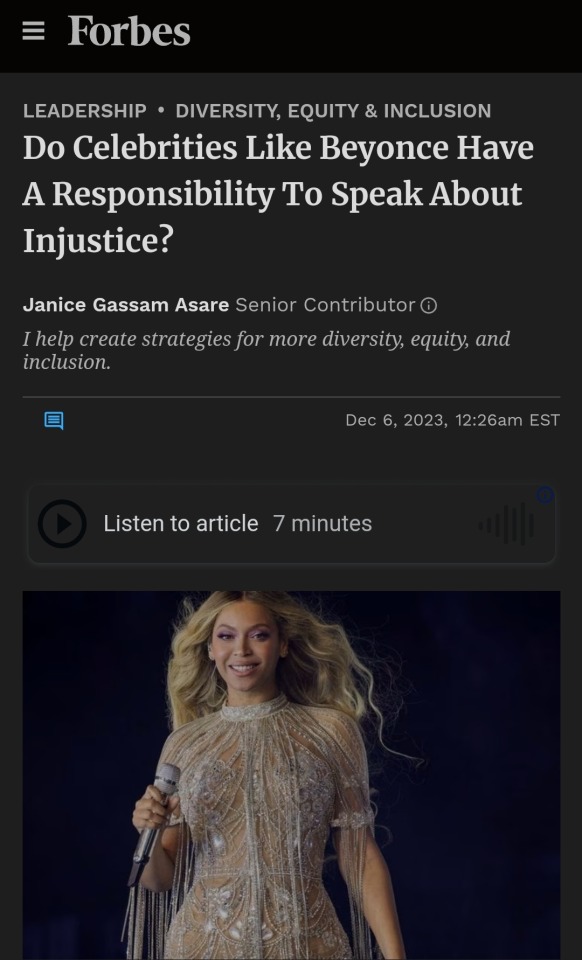
A lot of my fellow Black and brown folks are finding it hard to accept that Black billionaires (including Mrs. Carter) are not gonna save us or the world.
From Zora Neale Hurston and Nina Simone to Muhammad Ali and Eartha Kitt and from Ava and Aja to Collin Kapernick there is a looong history of Black entertainers, artists, and athletes using their creative genius to nurture ancestral liberation, black freedom, and good trouble be it raising their voices through their craft or putting their bodies (and careers) on the frontline --- in part, because many of them were able to kove in white intellectual and political spaces as the exceptional, "extraordinary negroes."
---
Read full article
"In a 1963 interview, civil rights leader Malcolm X discussed the pitfalls of pedestalizing Black celebrities in the Black community. In the interview, Malcolm X explained that unlike in the white community, in the Black community, people prop up Black celebrities when they are often nothing but puppets for the white establishment. Beyoncé and other celebrities must grapple with greater expectations of when and how they use their voice and must always deal with accusations that they are not doing enough with their power, privilege, and access. But those that assume the role of activist must be willing to use their voice, their art, and their influence to impact change."
If our creative Black billionaires were willing to risk their sponsorships, endorsements, and financial capital to move beyond the aesthetics of intellectual activism and actually help sustain lasting change . . . they would not be
#beyonce will not save us#beyonce#our world#black lives matter#ecosystem of white supremacy#politics#creative capitalism#padawan historian#when zora said#when fannie said
113 notes
·
View notes
Photo
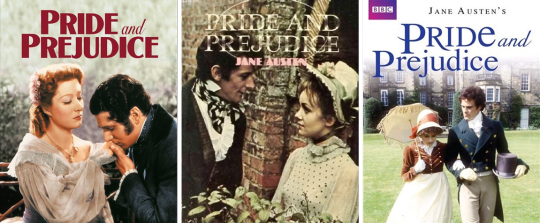
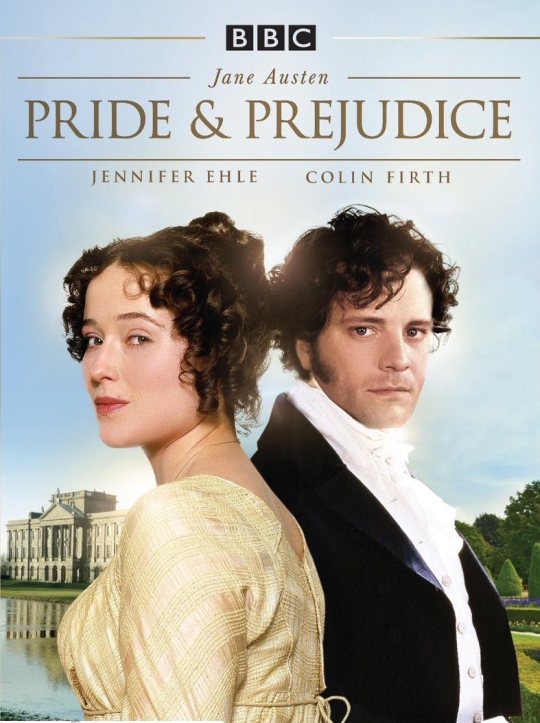
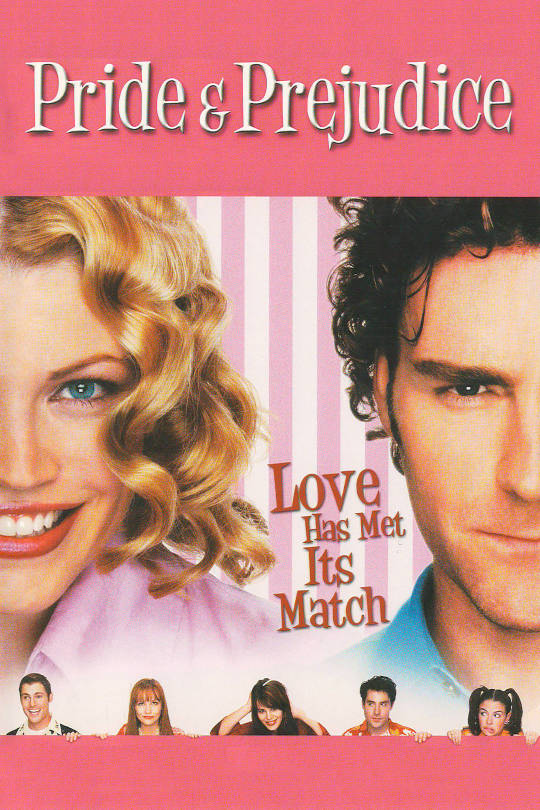
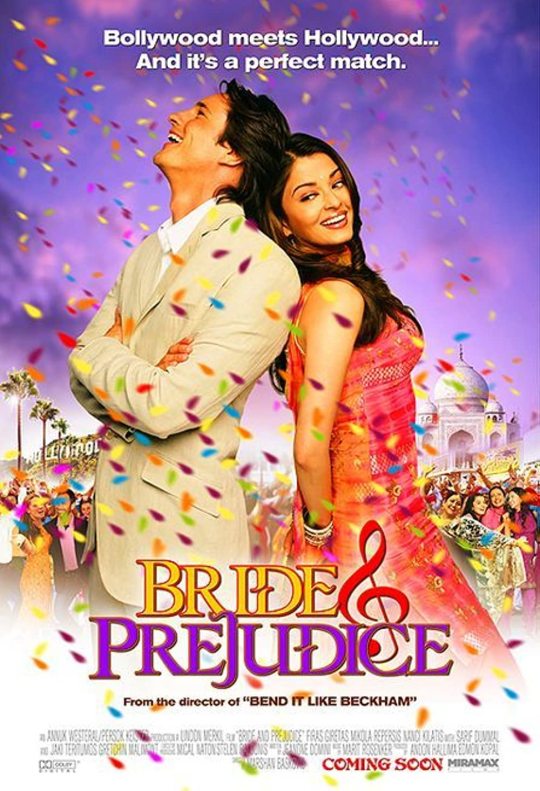
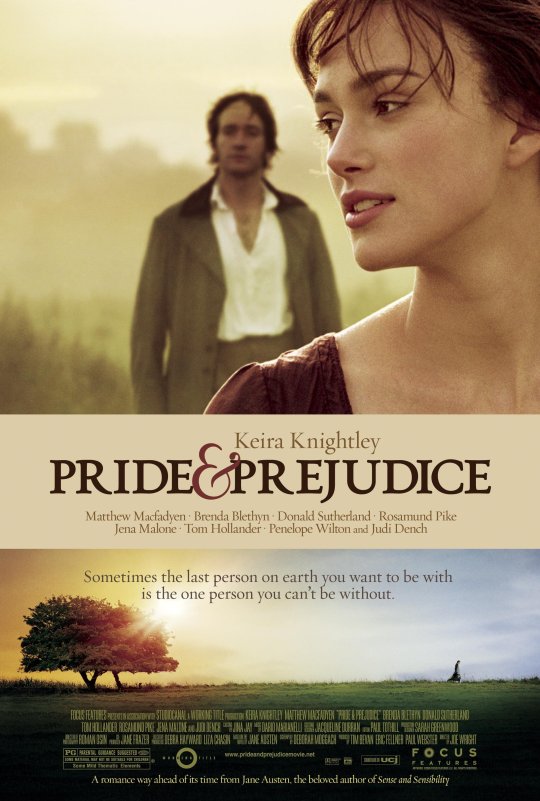
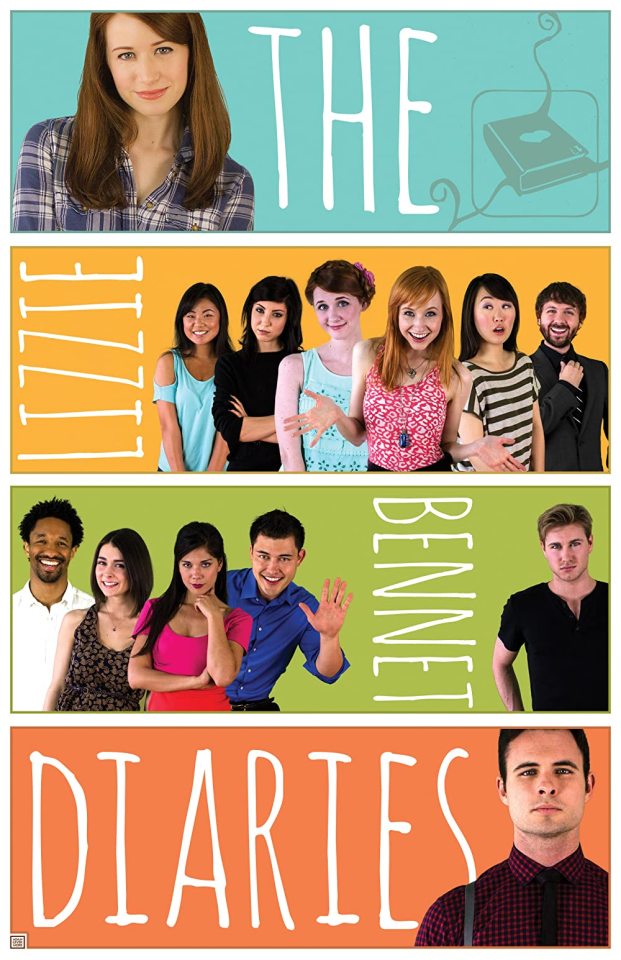


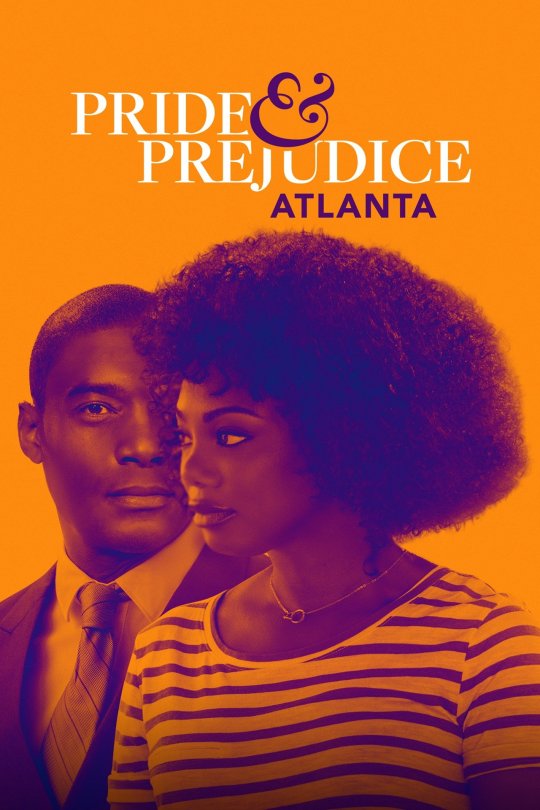
Pride and Prejudice
Classic and loose adaptions from 1940, 1967, 1980, 1995, 2003, 2004, 2005, 2012, 2016, 2018, 2019
The second of Jane Austen’s novels, first published in 1813, is the most often adapted, inspiring various different takes on it. The ones pictures above are detailed below:
Pride and Prejudice (1940 Film)
This black and white film departs from the original novel in some (or should I say many?) points
Written by Aldous Huxley and Jane Murfin, adapted from the stage adaptation by Helen Jerome; directed by Robert Z. Leonard
Starring Greer Garson as Elizabeth Bennet, Laurence Olivier as Mr. Fitzwilliam Darcy, Edward Ashley Cooper as George Wickham, Maureen O'Sullivan as Jane Bennet, Bruce Lester as Mr. Charles Bingley, Ann Rutherford as Lydia Bennet, Melville Cooper as Mr. William Collins, among others.
Pride and Prejudice (1967 Miniseries)
6 episodes x 24min. Black and White footage Written by Nemone Lethbridge, directed by Joan Craft
Starring Celia Bannerman as Elizabeth Bennet, Lewis Fiander as Mr. Fitzwilliam Darcy, Richard Hampton as George Wickham, Polly Adams as Jane Bennet, David Savile as Mr. Charles Bingley, Lucy Fleming as Lydia Bennet, Julian Curry as Mr. William Collins, among others.
Pride and Prejudice (1980 Miniseries)
5 episodes x 54 min Written by Fay Weldon, directed by Cyril Coke
Starring Elizabeth Garvie as Elizabeth Bennet, David Rintoul as Mr. Fitzwilliam Darcy, Peter Settelen as George Wickham, Sabina Franklyn as Jane Bennet, Osmund Bullock as Mr. Charles Bingley, Natalie Ogle as Lydia Bennet, Malcolm Rennie as Mr. William Collins, among others.
Pride and Prejudice (1995 Miniseries)
6 episodes x 54 min Written by Andrew Davies, directed by Simon Langton
Starring Jennifer Ehle as Elizabeth Bennet, Colin Firth as Mr. Fitzwilliam Darcy, Adrian Lukis as George Wickham, Susannah Harker as Jane Bennet, Crispin Bonham-Carter as Mr. Charles Bingley, Julia Sawalha as Lydia Bennet, David Bamber as Mr. William Collins, among others.
Pride and Prejudice (2003 Indie Film)
Loose adaption set in modern Utah, USA Written by Anne Black, Jason Faller, Katherine Swigert; directed by Andrew Black
Starring Kam Heskin as Elizabeth Bennet, Orlando Seale as Will Darcy, Henry Maguire as Jack Wickham, Lucila Sola as Jane Vasquez, Ben Gourley as Charles Bingley, Kelly Stables as Lydia Meryton, Hubbel Palmer as William Collins, among others.
Bride and Prejudice (2004 Film)
Bollywood-style Musical. Loose adaption set in modern India and England. Written by Paul Mayeda Berges, Gurinder Chadha; directed by Gurinder Chadha
Starring Aishwarya Rai as Lalita Bakshi (Elizabeth), Martin Henderson as William "Will" Darcy, Daniel Gillies as Johnny Wickham, Namrata Shirodkar as Jaya Bakshi (Jane), Naveen Andrews as Mr Balraj Uppal (Bingley), Peeya Rai Chowdhary as Lakhi Bakshi (Lydia), Nitin Ganatra as Kohli Saab (Collins), among others.
Pride and Prejudice (2005 Film)
Written by Deborah Moggach, directed by Joe Wright
Starring Keira Knightley as Elizabeth Bennet, Matthew Macfadyen as Mr. Fitzwilliam Darcy, Rupert Friend as George Wickham, Rosamund Pike as Jane Bennet, Simon Woods as Mr. Charles Bingley, Jena Malone as Lydia Bennet, Claudie Blakley as Charlotte Lucas, Tom Hollander as Mr. Collins, Donald Sutherland as Mr. Bennet, Judi Dench as Lady Catherine de Bourgh, among others.
The Lizzie Bennet Diaries (2012–13 Webseries)
160 episodes x 2-8 min, available on Youtube Loose adaption set in modern US, told in a vlog format
Created by Hank Green and Bernie Su, from Pemberley Digital
Starring Ashley Clements as Elizabeth Bennet, Daniel Vincent Gordh as William Darcy, Wes Aderhold as George Wickham, Laura Spencer as Jane Bennet, Christopher Sean as Bing Lee, Mary Kate Wiles as Lydia Bennet, Julia Cho as Charlotte Lu, Maxwell Glick as Ricky Collins, among others.
Lizzie’s videos amount to 100 episodes + 10 Q&A, but shorter series enrich the story by offering other characters’ perspectives, most notably Lydia’s (and also Georgiana’s). A playlist at Pemberley Digital’s Youtube channel features them all in order.
The series has also been adapted into a book, The Secret Diary of Lizzie Bennet (2014), and spawned a sequel novel, The Epic Adventures of Lydia Bennet (2015).
Pride and Prejudice and Zombies (2016 Film)
Loose adaption inspired by the 2009 novel of the same name by Seth Grahame-Smith, which adds zombies to Austen’s original story. The movie makes alterations from the zombie book as well.
Written and directed by Burr Steers
Starring Lily James as Elizabeth Bennet, Sam Riley as Colonel Fitzwilliam Darcy, Jack Huston as George Wickham, Bella Heathcote as Jane Bennet, Douglas Booth as Mr. Charles Bingley, Ellie Bamber as Lydia Bennet, Matt Smith as Parson William Collins, among others.
Orgulho e Paixão (Pride and Passion) (2018 Telenovela)
Brazilian telenovela in Brazilian-Portuguese
162 episodes x 30-40min (original version) Loose adaption set in 1910s São Paulo state, Brazil
Created by Marcos Bernstein, directed by Fred Mayrink
Starring Nathalia Dill as Elisabeta Benetido, Thiago Lacerda as Sr. Darcy Williamson, Pâmela Tomé as Jane Benedito, Maurício Destri as Camilo Bittencourt (Bingley), Bruna Giphao as Lídia Benedito, Bruno Gissoni as Diogo Uirapuru (Wickham/Willoughby), among others.
The story takes inspiration from all 6 of Austen’s major novels (plus Lady Susan), but mostly from Pride and Prejudice. Others stars include Chandelly Braz as Mariana Benedito (Marianne Dashwood) and Anajú Dorigon as Cecília Benedito (Catherine Morland).
Features 100 episodes in the International cut. The telenovela has been broadcast in other countries and languages (such as Spanish) but as far as I know, not in English.
Pride and Prejudice: Atlanta (2019 TV Film)
Loose adaption set in modern Atlanta, USA. All-black cast. Written by Tracy McMillan, directed by Rhonda Baraka
Starring Tiffany Hines as Elizabeth Bennet, Juan Antonio as Will Darcy, Raney Branch as Jane Bennet, Brad James as Charles Bingley, Reginae Carter as Lydia Bennet, Carl Anthony Payne as Rev. Collins, among others.
*****
Personal favorites: 2005, then 1995. But also: The Lizzie Bennet Diaries, Orgulho e Paixão
I also enjoyed Atlanta and, while it’s been a while since I’ve seen Bride and Prejudice, it’s got Indian musical numbers so c’mon, one gotta watch it.
Back to the closer adaptions, despite its age, 1980 is also good! 1940 is...very different, but fun in its own way.
In fact, while I find some of these versions weaker, I could find enjoyment in all of them - but maybe that’s cause I’m a sucker for P&P.
#pride and prejudice#elizabeth bennet#fitzwilliam darcy#pride and prejudice 2005#pride and prejudice 95#orgulho e paixão#period drama#the lizzie bennet diaries#jane austen adaptations#pride and prejudice atlanta#bride and prejudice#pride and prejudice and zombies#jane bennet#charles bingley#lydia bennet#mr darcy#mr bingley#I'll post about the other novels later#pep2005
484 notes
·
View notes
Text
The Observer Peter Capaldi
‘The government has been too terrible to make fun of’: Peter Capaldi on satire, politics and privilege

📷 ‘I’ve had to pretend to be more amenable’: Peter Capaldi wears blazer by oliverspencer.co.uk; shirt by toa.st. Photograph: Simon Emmett/The Observer
Tom Lamont Sun 14 Jan 2024 08.00 GMT
One winter morning, a Doctor Who comes calling. The Glaswegian actor Peter Capaldi lives about an hour’s walk from me and instead of us meeting in some midway café, the 65-year-old wanders over (leather booted, woolly jumpered, cloaked in a dark winter coat that sets off his pale-grey hair) to have coffee at my kitchen table. My son is off school with flu, medicating on Marvel movies and barely able to believe his luck as the actorly embodiment of an alien superhero wanders through our flat. While we’re waiting for the kettle to boil, I ask Capaldi whether he ran into any other Doctor Whos on his walk through the actorland that is suburban north London.
He grins an unguarded grin you don’t often see on screen. Capaldi became famous as the permanently angry spin doctor Malcolm Tucker in the BBC comedy The Thick of It, which ran from 2005 to 2012 and, after that, between 2013 and 2017, he played the sternest, least imp-ish Doctor Who in decades. In his new Apple TV show, a police procedural called Criminal Record, which Capaldi co-produced with his wife, Elaine Collins, he stars as an ageing detective: another scowler. Now, coffee in hand, he smiles affectionately. So, did he bump into any other Doctor Whos this morning? “David [Tennant, 10th Doctor] used to live in Crouch End, near me. Matt [Smith, 11th Doctor] lives around here. Jodie [Whittaker, 13th Doctor] is nearby, Christopher [Eccleston, 9th Doctor] too, I think.” But no, no encounters with his fellow alumni this morning, Capaldi says.
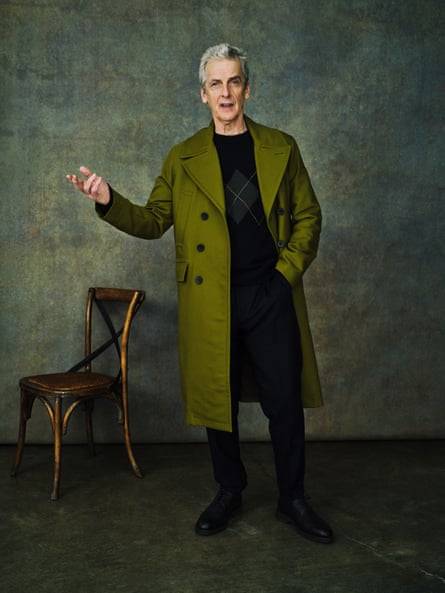
📷 ‘You can’t be the cynical melancholic I naturally am’: Peter Capaldi wears coat by Mr P (mrporter.com); jumper by uniqlo.com; trousers by reiss.com; and shoes by johnlobb.com. Photograph: Simon Emmett/The Observer
“You do run into each other. You have a laugh, a gossip, you share. There aren’t a lot of people who have been in that role in the centre of that storm. Most people think the job is being on the Tardis and running around with Daleks. Which it is. That’s the fun part. But there’s a lot of other stuff you have to do, too. You’re kind of the face of the brand and the brand is very big. You can’t be the cynical melancholic I naturally am. You have to pretend to be a version of yourself that’s far more amenable.”
Is it a bit like being the Queen?
“Kind of,” he says. “You embody for a time this folk hero, this icon. I was able to comfort people in a way that would be beyond the powers of Peter. You could walk into a room and people gasped with delight. It doesn’t happen any more.”
Capaldi grew up in 1960s and 1970s Glasgow. His Italian-Scottish family lived in a tenement block. “We had nothing. We had zilch.” From a young age he exhibited signs of artistic talent, though he characterises himself, then and now, as a seven- or eight-out-of-10 at various crafts. “When I was young, I was good at drawing. My grandmother used to say that came from Italy. She felt that I was an absolute throwback to Leonardo da Vinci – her direct line to Michelangelo! It confused me because I wanted to do these other things, play music, act – which one was I supposed to do?”

📷 Great Scot: Peter Capaldi wears blazer by ralphlauren.co.uk. Photograph: Simon Emmett/The Observer
After graduating school at 18, this confused cross-artistic trajectory continued. “I tried to be an actor, but I didn’t get into drama school, so I went to art school. When I was at art school, I joined a band.” In his early 20s, Capaldi released a single as part of a group called Dreamboys; then he quit music and spent most of his 20s acting, getting small jobs in theatre and TV as well as a walk-on part opposite John Malkovich in 1988’s Dangerous Liaisons. In his 30s, he decided to concentrate on directing.
In 1993, a short film he directed, Franz Kafka’s It’s a Wonderful Life, won him an Oscar, industry recognition that launched Capaldi off on a heady but doomed sojourn in America. Well caffeinated and gripping the edge of my kitchen table to tell the story, he recalls what happened when he was courted as a hot prospect by the Weinstein brothers, Bob and Harvey, then the co-presidents of Miramax and at the height of their power and influence. Capaldi spent a year working on a screenplay for them, at the end of which Bob flew him out to Manhattan to discuss casting and production. As far as Capaldi was concerned it was a formality; bottles of champagne were cooling at home.“I thought I was off and away.”
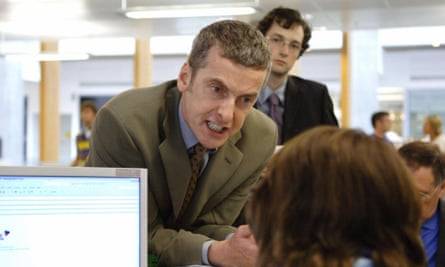
📷 Feel the heat: in The Thick of it. Photograph: Everett Collection/Alamy
Miramax sent a limo to pick him up from the airport. “I fell into conversation with the driver, lovely man, Ralph. When I got out of the car I gave him a big tip. Because I was a big shot now, you see. Then Ralph said: ‘I’ve been told to wait for you here.’” Uh oh. “Inside, all the people in the office were avoiding my eye. Bob said, ‘I’ll come straight to it, we’re not gonna do the movie, my brother Harvey says he doesn’t know how to sell it.’ He said, ‘But we love you! You’re one of the family! You’ll always have a place here!’ Needless to say, I never heard from him again. Obviously, while I was in the air they’d had a discussion and changed their minds. I was so dumbfounded as I climbed back into the limo I just laughed. I had no money, because we’d bought a little house in Crouch End, and I had no career, because I’d turned my back on acting.”
In a gesture that Capaldi has never forgotten, Ralph the limo driver tried to give him back his big tip.
As we chat, the postman rings the bell, delivering packages. Council tree surgeons are working on the road outside. My son needs water, words of comfort, possibly he just wants another good long look at Capaldi. I’ve never interviewed anyone in my own home before and the limitations of the format are becoming apparent. But Capaldi seems to respond well to the setting and its lack of frills. His adult daughter and her family have been visiting, brand new baby in tow. When I apologise for all the noise and interruptions, Capaldi says it’s nothing compared to a newborn.
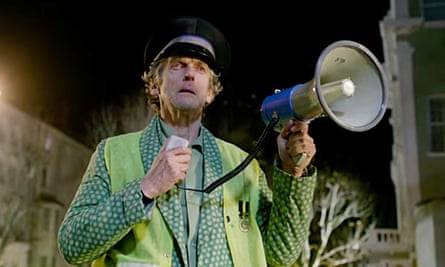
📷 Fun fact: in Paddington 2. Photograph: Supplied by LMK
He and Collins were young parents themselves when his directing career fell apart. Arriving back in London from the disastrous Manhattan trip, “The initial feeling was shock. Then a pragmatic survival instinct kicked in.” Capaldi rejoined the auditioning circuit. “I was a psychiatrist in Midsomer Murders. I was a beekeeper in Poirot – AN Other Actor. Someone else would have turned down these parts first.” Collins, until that point an actor, too, decided to pivot into development and production, a career move that has worked well for her.
Artists often do their best work while they’re at their lowest, perhaps because they feel they haven’t much to lose, little to be afraid of. Sloping into a Soho audition room in the mid-2000s to meet Armando Iannucci about a new political comedy, Capaldi remembers being in a foul mood. He’d just come from an unsuccessful audition for another BBC show, “being taped like I was Vivien Leigh reading for Scarlett O’Hara”. He remained grumpy when Iannucci admitted there wasn’t yet a script for The Thick of It, they were going to try improvising instead. “I knew Armando was supposed to be a comedy genius, but at that moment I was, like, ‘Yeah? Let’s see some of your comedy genius then. Fucking show me what you’ve got, you Oxbridge twat.’ My whole attitude that day was essentially Malcolm Tucker’s, and it informed the improvisation we did.”

📷 Folk Hero: in his new series Criminal Record. Photograph: Ben Meadows/Apple
When The Thick of It debuted, Capaldi entered the sitcom pantheon overnight. Revisiting episode one, what’s glaring is how fully formed, how exquisite a character Tucker is. Alan Partridge, Samantha Jones, Frasier Crane, David Brent … these creations had to be discovered over time by their actors and writers. With Tucker it’s all there from word one, the controlled fury, the foul-mouthed eloquence, that constant convenient deployment of hypocrisy. Capaldi played the part for seven years, winning a Bafta mid-run. It led to other memorable gigs, as a news producer in 2012’s The Hour and as Count Richelieu in a 2014 adaptation of the Musketeers story. He was Mister Micawber in Iannucci’s 2019 reimagining of David Copperfield, a fun role that was bookended by two equally fun Paddington movies, released in 2014 and 2017.
Promoting these projects, Capaldi would be asked to give a view on political events of the day, as seen through the eyes of the character who made his career. What would Malcolm Tucker think of Brexit, or the pandemic response, or the premierships of Johnson or Truss? Capaldi long ago stopped answering these questions. “For one thing, I need about 10 writers, Tony Roach and Jesse Armstrong among them, to supply Malcolm’s bon mots. But more than that, I think these [recent Conservative] governments have been too terrible to make fun of. I think they’ve been incompetent and corrupt and I’m not going to make jokes to give them time off.”
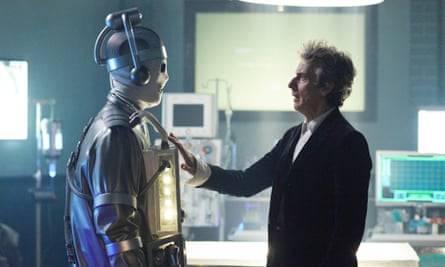
📷 ‘You’re the face of the brand and the brand is very big’: playing Doctor Who. Photograph: Everett Collection Inc/Alamy
We talk about how weird it is that political satire should have fallen into abeyance in the 2020s – perhaps because, as Capaldi says, “things have been too bad to make fun of. Making fun normalises situations I don’t think should be normalised. The planet is burning. They’re pumping shit into the rivers. I’m not gonna be part of making jokes about that… All this highfalutin life I’ve had,” he says, of the awards parties, the film roles, the immortal runs as a sweary spin doctor and an inscrutable Doctor Who, “is because I went to art school. My parents couldn’t afford to send me. I went because the government of the day paid for me to go and I didn’t have to pay them back. There was a thrusting society then, a society that tried to improve itself. Yes, of course, it cost money. But so what? It allowed people from any kind of background to learn about Shakespeare, or Vermeer, or whatever they wanted to learn about. Why did we lose this, this belief in ourselves?”
For Capaldi, the world of acting feels narrower now, meaner in a way that seems to mirror British society at large. He thinks of his industry as one in which subtle discriminations hold sway and “gatekeepers and Aztecs still decree who shall be admitted… I think there’s a real problem. There isn’t the funding or support for young people from poorer backgrounds to get into the theatre. And indeed there aren’t the theatres.” He wonders about the teenage Anthony Hopkinses out there, talented, without the obvious means or encouragement to train in the arts. And the inverse, actors who Capaldi, in his frank and acid way, characterises as privileged duds.

📷 Shared vision: with his wife and co-producer Elaine. Photograph: Trinity Mirror/Mirrorpix/Alamy
“This business is full of people who are not the real thing,” he says, “people I perceived to be artists ’cos they had posh accents, but who didn’t have it, they just sounded like they did.” He goes on to tell a tantalising but intentionally vague story about a major star he worked with, someone who revealed themselves through the course of an acting collaboration to be a dud hiding in plain sight. He won’t provide details (“Too easy to figure out. When everyone’s dead I’ll tell you”), but he says the experience changed him professionally, leaving him more aware of his own limitations, but grateful to have a little vinegar and grit in the mix. “There’s a kind of smoothness, a kind of confidence that comes from a good [paid-for] school. That’s what you’re struck by: they seem to know how to move through the world recognising which battle to fight, where to press their attentions. But it can make the acting smooth, which to me is tedious. I like more neurosis. More fear. More trouble, you know?”
I think this part of his skillset expressed itself well during the three-season run on Doctor Who, when Capaldi was prepared to come across as remote, a little unreachable. “I don’t set out to make the audience like me,” he says. “Because my characters don’t know an audience is there.” For me, his high point as the Doctor was an episode called Heaven’s Gate, a chronology-stretching tale written by Steven Moffatt in which the Doctor is set a sisyphean task of endurance that lasts about 50 minutes or so in screen time and several millennia in narrative terms. Capaldi didn’t play it as a hero. He wasn’t charming or boyish. In this episode especially, he was grim and patient and knackered. It was a rare occasion when the character, apparently alive for hundreds of years, seemed old.

📷 Burning bright: with John Malkovich in Dangerous Liaisons. Photograph: Everett Collection/Alamy
In the new TV show, Criminal Record, he explores a more mortal kind of ageing, life’s third act, its inevitable professional humblings. Capaldi plays a London DCI in his 60s, coming to the end of a career, already moonlighting as a private security contractor, intimidated by the thrust and purpose of a younger colleague at the Met played by Cush Jumbo. As Jumbo’s character grows in confidence, Capaldi’s shrinks. It is a paradox of experience he can relate to. “I find the older I get, the closer I am to who I was,” he says.
I ask him to explain.
“Like I’m returning to… ‘roots’ is the wrong word. I feel more and more like my mother and father, more and more keenly aware of the values they had.” He provides an interesting example, how he has become all thumbs around the act of tipping in restaurants: “I can be in a complete sweat about that.” He can imagine his parents, both dead now, in a similar muddle. “From the background we come from, you can have a bit of anxiety about coming across as grand. So you have to allay that by making sure you are communicating with everybody, all the time.”
Capaldi shakes his head, chuckling softly. He has finished his coffee. He’s about to put on his big coat, say goodbye to my son, and walk back through Whoville to his home and his family. Before he leaves we return to the subject of actors from privileged backgrounds. He says he feels mean, like he took unfair advantage of them in their absence. “It’s not their fault,” he says. “It’s just that there’s less and less of my lot in the arts.” And this concerns him, he continues, because “people of all backgrounds are sophisticated, are interesting, are equally prone to tragedy and joy. Any art that articulates that is a comfort. Art is the ultimate expression of you are not alone, wherever you are, whatever situation you are in. Art is about reaching out. So I think it’s wrong to allow one strata of society to have the most access.”
He nods, feeling he’s expressed himself better. I agree.
Criminal Record is streaming now on Apple TV+, with new episodes every Wednesday
Fashion editor Helen Seamons; Grooming by Kenneth Soh at The Wall Group using Eighth Day; fashion assistant Sam Deaman; photography assistants Tom Frimley and Tilly Pearson; shot at Loft Studio.
31 notes
·
View notes
Text
Well, now. The pronatalist couple featured in a recent Guardian profile is getting flak for their kid-smacking ways, and this is how they chose to respond:
"We are kind of shocked by the racism threaded throughout this recent controversy. It is pretty well-documented that African Americans and other minority groups practice corporal punishment much more than other groups," Simone Collins said via email, linking to a CNN article published in 2011. Malcolm Collins said it was "uniquely offensive" to him considering "the majority of Americans practice some form of corporal punishment, as you can see from the statistics with specifically that being the minority groups of Americans. So yeah, I think it's an arguably racist position."
Uh, guys, maybe this doesn't have anything to do with race at all? Immediately pulling the race card isn't going to win anyone over to your side. 🤦♀️
#Malcolm and Simone Collins#Simone and Malcolm Collins#pronatalism#pronatalist#pro-natalism#pro-natalist#natalism#natalist#race#racism#racist#eugenics
2 notes
·
View notes
Text
The Shadohunter Chronicles Character Showdown
First Round, Second Round, Third Round, Fourth Round, Fifth Round, Semi-Finals, Finals
Rosemary Herondale vs Arthur Blackthorn, (Feb 23)
Celine Montclaire vs Diego Rocio-Rosales, (Feb 24)
Maureen Brown vs Anna Lightwood, (Feb 25)
Christopher Lightwood vs Ragnor Fell, (Feb 26)
Julian Blackthorn vs Livvy Blackthorn, (Feb 27)
Bridget Daly vs Jon Cartwright, (Feb 28)
Nate Grey vs Sona Carstairs, (Feb 29)
Gabriel Lightwood vs Madeleine Bellefleur, (Mar 1)
Paige Ashdown vs Rupert Blackthorn, (Mar 2)
Valentine Morgenstern vs Kraig, (Mar 3)
Andrew Blackthorn vs Irene, (Mar 4)
Axel Mortmain vs Thais Pedroso, (Mar 5)
Kit Herondale vs Ke Yi Tian, (Mar 6)
The Dark Sisters vs Filomina di Angelo, (Mar 7)
Lucie Herondale vs Simon Lovelace-Lewis, (Mar 8)
Shiyun Jung vs Cameron Ashdown, (Mar 9)
Elias Carstairs vs Tavvy Blackthorn, (Mar 10)
Luke Greymark vs Will Herondale, (Mar 11)
Ash Morgenstern vs Matthew Fairchild, (Mar 12)
Sophie Collins vs Jaime Rocio-Rosales, (Mar 13)
Catarina Loss vs Tessa Grey, (Mar 14)
Jessamine Lovelace vs Woolsey Scott, (Mar 15)
Diana Wrayburn vs Magnus Lightwood-Bane, (Mar 16)
James Herondale vs Jesse Blackthorn, (Mar 17)
Sebastian Morgesnstern vs Ty Blackthorn, (Mar 18)
Julie Beavul vs Tatiana Lightwood, (Mar 19)
Meliorn vs Helen Blackthorn, (Mar 20)
Alexander Lightwood vs Arawn, (Mar 21)
Jace Lightwood-Herondale vs Michael Wayland, (Mar 22)
Raphael Santiago vs Kieran Kingson, (Mar 23)
Marisol Garza vs Hypatia Vex, (Mar 24)
Dru Blackthorn vs Ari Bridgstock, (Mar 25)
Eugenia Lightwood vs Bat Velasquez, (Mar 26)
Eliza Rosewain vs Rafael Lightwood-Bane, (Mar 27)
Anush Joshi vs Seelie Queen, (Mar 28)
Church vs Cecily Herondale, (Mar 29)
Annabel Blackthorn vs Robert Lightwood, (Mar 30)
Beatriz Mendoza vs Malcolm Fade, (Mar 31)
Jocelyn Fairchild vs Max Lightwood-Bane, (Apr 1)
Imogen Whitlaw vs Jem Carstairs, (Apr 2)
Mother Hawthorn vs Chairman Meow, (Apr 3)
Manuel Casales-Villalobos vs Barbra Lightwood, (Apr 4)
Cordelia Carstairs vs Benedict Lightwood, (Apr 5)
Divya Joshi vs Lily Chen, (Apr 6)
Patrick Penhallow vs Alastair Carstairs, (Apr 7)
Isabelle Lightwood vs Mark Blackthorn, (Apr 8)
Amatis Greymark vs George Lovelace, (Apr 9)
Maryse Lightwood vs Elliott, (Apr 10)
Alexei de Quincey vs Elyas the Demon, (Apr 11)
Hodge Starkweather vs Henry Branwell, (Apr 12)
Camille Belcourt vs Auraline, (Apr 13)
Aline Penhallow vs Roland Loss, (Apr 14)
Johny Rook vs Stephen Herondale, (Apr 15)
Rayan Maduabuchi vs Alec Lightwood-Bane, (Apr 16)
Esme Hardcastle vs Jordan Kyle, (Apr 17)
Grace Blackthorn vs Evelyn Highsmith, (Apr 18)
Jia Penhallow vs Charles Fairchild, (Apr 19)
Horace Dearborn vs Max Lightwood, (Apr 20)
Emma Carstairs vs Mina Carstairs, (Apr 21)
Charlotte Fairchild vs Aloysius Starkweather, (Apr 22)
Janus Herondale vs Zachary Carstairs, (Apr 23)
Gwyn ap Nudd vs Clary Fairchild, (Apr 24)
Maia Roberts vs Gideon Lightwood, (Apr 25)
Thomas Lightwood vs Cristina Mendoza-Rosales, (Apr 26)
#shadowhunters#the shadowhunter chronicles#tsc#the dark artifices#tda#the mortal instruments#tmi#the last hours#tlh#the wicked powers#twp#tid#the infernal devices#Shadowhunter Character Showdown 2024#Its back with more charcters then ever#*cries in a corner despiet knowing I brought this on myself*#I'll update with links as it goes along liek always
31 notes
·
View notes
Video
youtube
The Biggest UBI Experiment in History Failed: The Cover Up
3 year long UBI study. $1,000/month
The vast majority of people did not improve their lives in any way.
On average, those on UBI compared to the control group:
$3,000 less wealthy.
Over all, health outcomes did not improve, despite increased medical visits.
On average, they worked 1.3 hours less per week. So, the majority of them didn’t even work less.
They did not spend more time with their children.
Runtime: 1:12:31
1 note
·
View note
Text
Pronatalist Parents Under Fire After Dad Slapped Toddler in Face
Over the phone, Malcolm Collins told Business Insider that he "bopped" his son on the nose to jar him, not to hurt him. The couple chose the punishment specifically after observing "animal parenting models," he said.
"Basically, across the nose is what we aim for," Malcolm Collins said. "The reason I think it's better than a slap on the wrist is because it doesn't need to be painful to have the same impact. By that, what I mean is when somebody enters the space around your face, it is very shocking and very reorienting, especially if you're in an emotional loop, which is easy for kids to get into."
He added: "The only way you could achieve the same effect by hitting a child's wrist is to hit it large enough to cause a significant amount of pain, which I wouldn't want to do, but I can understand why visually people might be, 'Oh, the slight hit on the nose or the face is really bad' because it looks visually bad."
The couple both said they found the backlash they faced on social media to be racist since, they argued, minorities often hit their children without the same backlash.
"We are kind of shocked by the racism threaded throughout this recent controversy. It is pretty well-documented that African Americans and other minority groups practice corporal punishment much more than other groups," Simone Collins said via email, linking to a CNN article published in 2011.
Malcolm Collins said it was "uniquely offensive" to him considering "the majority of Americans practice some form of corporal punishment, as you can see from the statistics with specifically that being the minority groups of Americans. So yeah, I think it's an arguably racist position."
Both of them can die please.
7 notes
·
View notes
Text
As part of my 700 followers celebration (I AM also working on that Malec fic) I am going to be doing a TSC characters poll bracket for the next few weeks! Below the cut I’m including a list of the 64 characters I’ve decided to include. Let me know if there’s anyone I’m missing, and the first round of polls will be posted Sunday!
1. Clary Fairchild
2. Jace Herondale
3. Alec Lightwood
4. Simon Lovelace
5. Izzy Lightwood
6. Magnus Bane
7. Tessa Gray
8. Will Herondale
9. Jem Carstairs
10. Charlotte Fairchild
11. Henry Branwell
12. Gideon Lightwood
13. Gabriel Lightwood
14. Jessamine Lovelace
15. Cecily Herondale
16. Sophie Collins
17. Ragnor Fell
18. Cordelia Carstairs
19. James Herondale
20. Lucie Herondale
21. Alastair Carstairs
22. Thomas Lightwood
23. Christopher Lightwood
24. Matthew Fairchild
25. Anna Lightwood
26. Ari Bridgestock
27. Grace Blackthorn
28. Jesse Blackthorn
29. Sebastian Morgenstern
30. Maia Roberts
31. Raphael Santiago
32. Catarina Loss
33. George Lovelace
34. Lily Chen
35. Emma Carstairs
36. Julian Blackthorn
37. Cristina Rosales
38. Mark Blackthorn
39. Kieran Kingson
40. Helen Blackthorn
41. Aline Penhallow
42. Ty Blackthorn
43. Livvy Blackthorn
44. Kit Herondale
45. Dru Blackthorn
46. Tavvy Blackthorn
47. Diana Wrayburn
48. Ash Morgenstern
49. Rafael Lightwood-Bane
50. Max Lightwood-Bane
51. Max Lightwood
52. Tatiana Lightwood
53. Malcolm Fade
54. Anabel Blackthorn
55. Valentine Morgenstern
56. Shinyun Jung
57. Thaïs Pedroso
58. Jaime Rosales
59. Diego Rosales
60. Anush Joshi
61. Mina Carstairs
62. Church
63. Oscar Wilde
64. Chairman Meow
#tsc#the shadowhunter chronicles#the wicked powers#the mortal instruments#the infernal devices#the last hours#the dark artifices#the eldest curses
13 notes
·
View notes
Text
Appropriate Surnames, and Aggravating People
I'll be honest enough to admit this article got me good and riled up, mainly because of a lot of what it doesn't say. I will also say their surname is very appropriate (as someone who has recently finished re-reading "Pride and Prejudice" for the nth time). So, rant incoming...
The first thing to note is when well-to-do upper-middle-class Americans start talking about "population", they're generally talking about race. Overpopulation means "there are too many brown people"; underpopulation means "there are not enough white people". This is definitely the case with the Collinses, and the various people who are involved in their "cause". They are proudly conservative right-wing Americans, which means their response to the whole issue of "underpopulation" (as stated previously, "not enough white people") is to urge people like them to breed more and replace the population. Great Replacement thesis, anyone?
I can see why the Collinses put themselves forward as mouthpieces for their movement. To put it bluntly, they're fools and cranks, and they're that particular variety of well-off fool and crank who believes all they have to do is get the rockets off the ground, rather than worry about where they land ('"That's not my department" says Werner von Braun'). They have set off boldly down the road - fixing the potholes they cause is someone else's job. They're also of that particular brand of data-driven fool from the US Tech sector who believes very strongly in the inevitable logic of "the right thing" making its own case. It is notable the one area of data this particular type of data-driven fool never pays attention to is historical data - they borrow from the solipsistic logic of the objectivists and the libertarians there, essentially deciding "history starts today" and refusing to look at what the problems with their solutions (often of the sub-type "simple, cheap and wrong") have been the last few hundred times people have tried them.
What they're describing is the classic upper-middle-class breeding program - people who are wealthy enough to afford children should be having as many of them as possible, people who are too poor to afford children should be breeding so their children can be adopted / fostered by the wealthy upper-middle-classes as an act of charity, and well-to-do white autistic people should definitely be trying to out-breed the neurotypical masses because autism is its own superpower (just look at Elon Musk!).
Sidebar: I am particularly annoyed about the highly-autistic side of this, because quite frankly it is very much a case of "if you have enough money to throw at it, nothing is a disability" - the people who are busy proclaiming autism as a superpower are usually people who were diagnosed young, didn't have particularly severe autism to start with, had all the therapy in the world thrown at them from a very young age, and who have enough money, status, and familial support to be able to set up their lives to work around the constraints their autism places on them. They are able to arrange their worlds to suit them. Nice for them. If you aren't able to arrange the world to work around the constraints of your autism (for example, if you're working class, where you're basically given the options of conform or die) then yes, the same level of autism does become a disability. I'm saying this as a "high-functioning" person who has what's called "category 2" autism here in Australia - even with a good strong social safety net, at least fifty percent of the reason I went to the trouble of getting a diagnosis is so I could get the supports I need, rather than having to struggle all the time and argue uphill against disinterested systems in order to even get my needs recognised.
Anyway, reading about the Collinses is an exercise in the peculiar type of frustration which comes from having to deal with the sort of conservative thinker who doesn't want to see beyond the end of their own arms, and who works very hard to avoid doing so. Mr Collins doesn't believe in funding maternity leave - "The “number one pronatalist policy position,” he tells me, is for governments to make it easier for women to work from home and have flexible hours. The Collinses believe in childcare, but not maternity leave" - which would be fine, except that a lot of the jobs women do (outside Silicon Valley, where they are mentally still resident, even if they're physically living in Pennsylvania) aren't ones which could be done from home. For example: care work - childcare, disability care, elder care, nursing care; teaching; most service jobs - all of these aren't things you can do from home. (Effectively, they're willing to pay for a woman who works in childcare to go to work and care for someone else's children after they've given birth, but they aren't willing to pay for her to have time off to care for her own. It takes a very special type of data-driven thinking to come up with that one).
“Within and between countries, the less money somebody has, the more kids they have. This is a very well-studied phenomenon,”
Yes, it is. The main reason a lot of people in poorer families in poorer countries have lots of kids is because they also have high childhood mortality - you have seven kids in the hope that two will survive to breeding age, and you hope for sons (and expose the daughters) because sons can bring in wealth, while daughters cost money in dowry. In places like the USA, where the social safety net is atrocious, where pregnancy care and post-pregnancy care are expensive, and where sex education consists of "abstinence only", poorer families have larger families for one very straightforward reason: they don't have any options for how not to do so within the income they have.
"Eugenics is state-sponsored selective breeding to influence the dominance of certain genes, he argues. What he and Simone are doing is polygenics, using technology to give parents the choice over which traits they value most."
'It's not eugenics when we're the ones doing it', in other words. It's not eugenics when the government isn't involved.
Mr Collins is, in fact, wrong here. Eugenics, as a philosophy about human breeding, came out of the interpretations of Darwin's work on natural selection done by Darwin's half-cousin, Francis Galton, however it was predated by countless societies where a crude version of population control and santization of the breeding pool was performed by exposing disabled infants (or excess infants from families too poor to support them) to the elements, drowning them in a nearby river, burning them alive in the fire and all the various other means by which infanticide was enacted. Galton, who was a proper Victorian gentleman complete with country estate and so on, was aware of the work being done with selective breeding during the era in order to increase the size of cattle, sheep, pigs etc in order to feed a growing population and felt that this work could also be beneficially applied to humans, to weed out things like hereditary diseases, weakness, and "feeble-mindedness" from the human gene pool. He communicated these ideas to a large number of his like-minded colleagues, via articles such as "Hereditary Talent and Character" and books like "Hereditary Genius" and they gave these ideas the label of "eugenics" (from the Greek term for "good breeding stock") rather than the more blunt Anglo-Saxon of "selective breeding" because snob value (and also good advertising). One of the core ideas behind eugenic thinking can be boiled down to: "the wealthier you are, the better your genes must be".
There is a wealth of social science research out there which proves it's not just the genes, it's all the other little advantages wealth brings with it which work as a cosmic thumb on the scales in favour of the "inevitable" success of the scions of the wealthy. But again, this data and this science isn't of interest to the sort of "data driven" person that Mr and Mrs Collins embody. Funny that.
To be honest, I'm looking forward to the "fifteen years later" follow-up article to this one - because I suspect at least one of the Collins children is going to come right out and say "I was raised in a cult".
4 notes
·
View notes